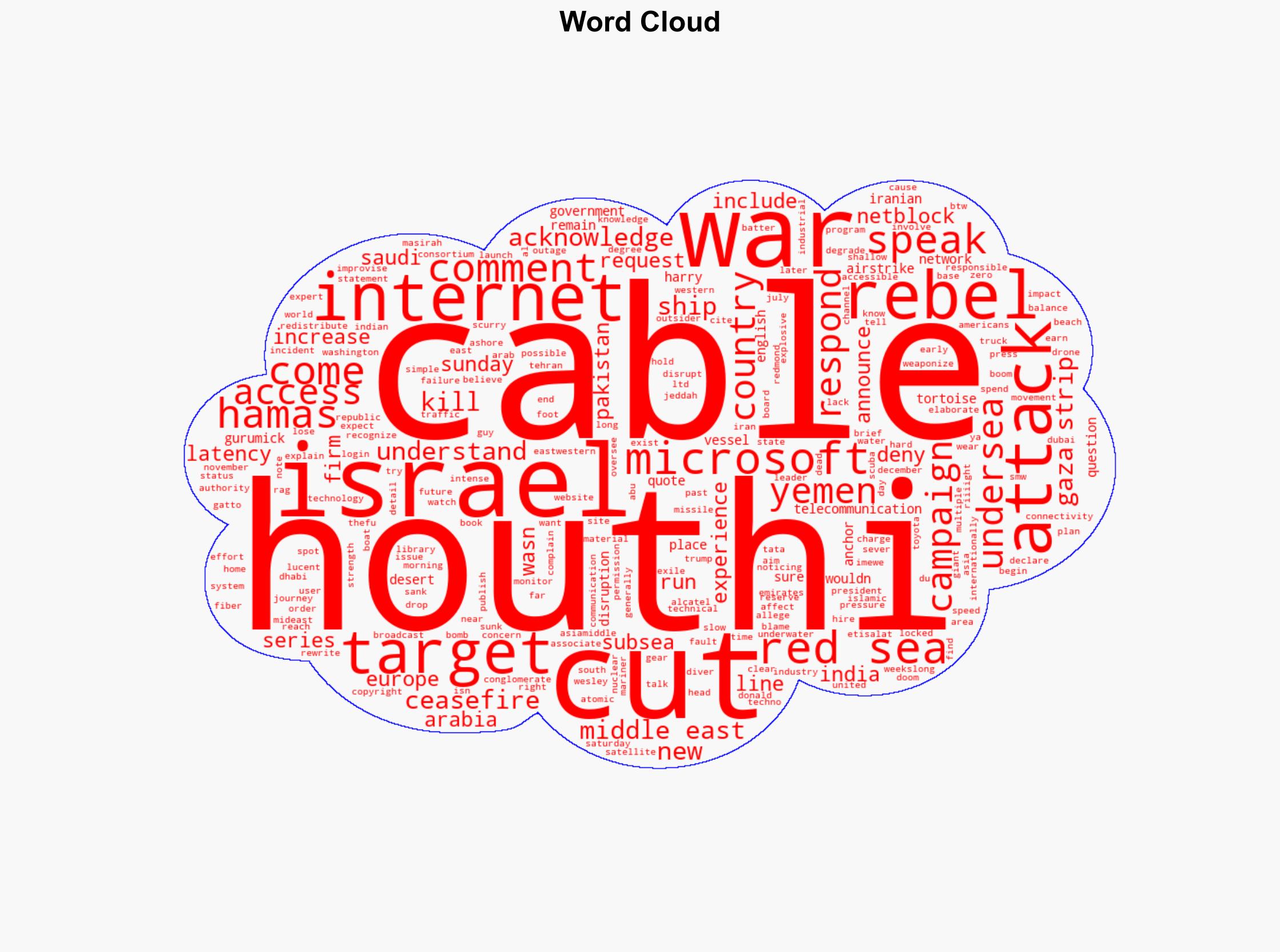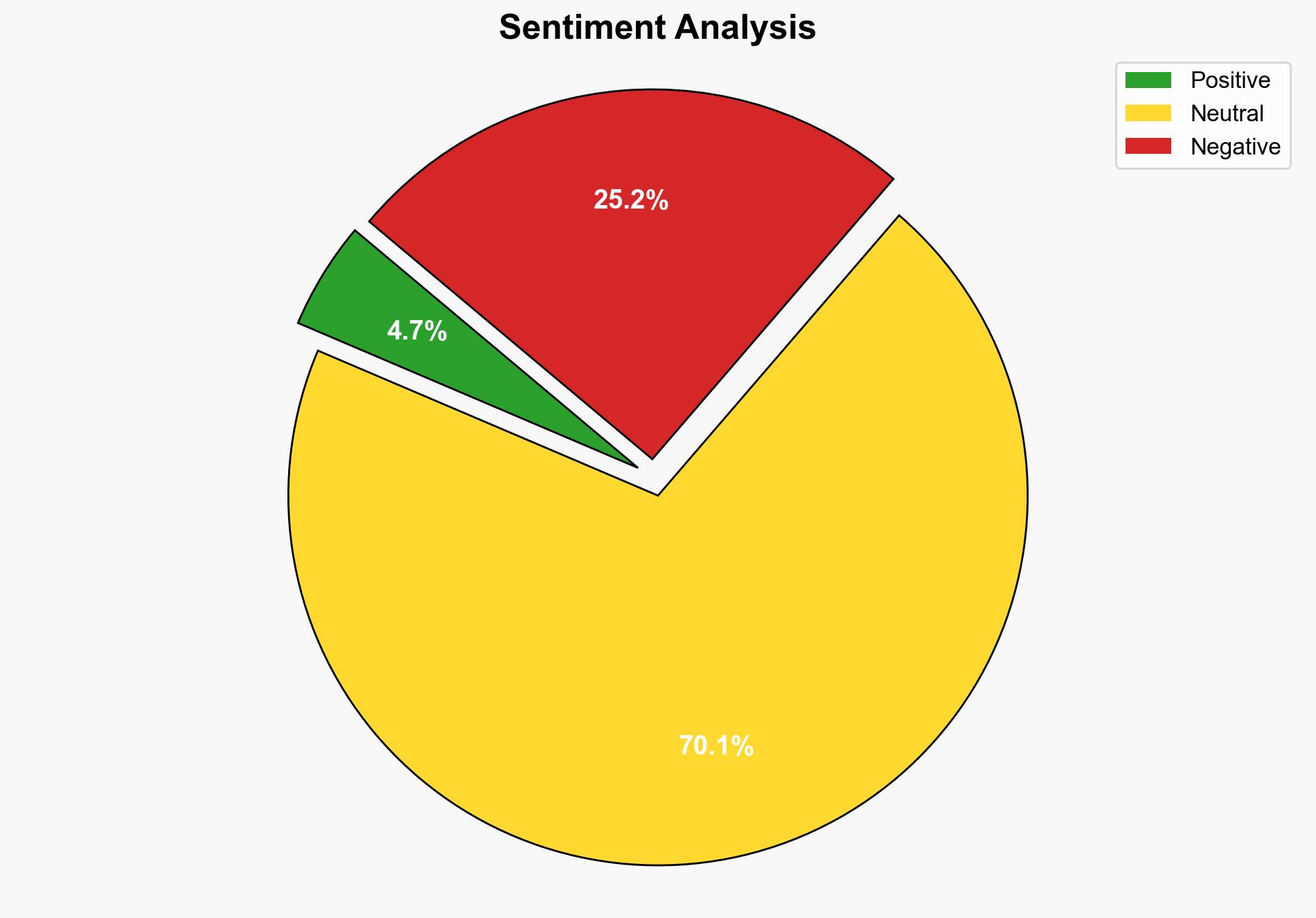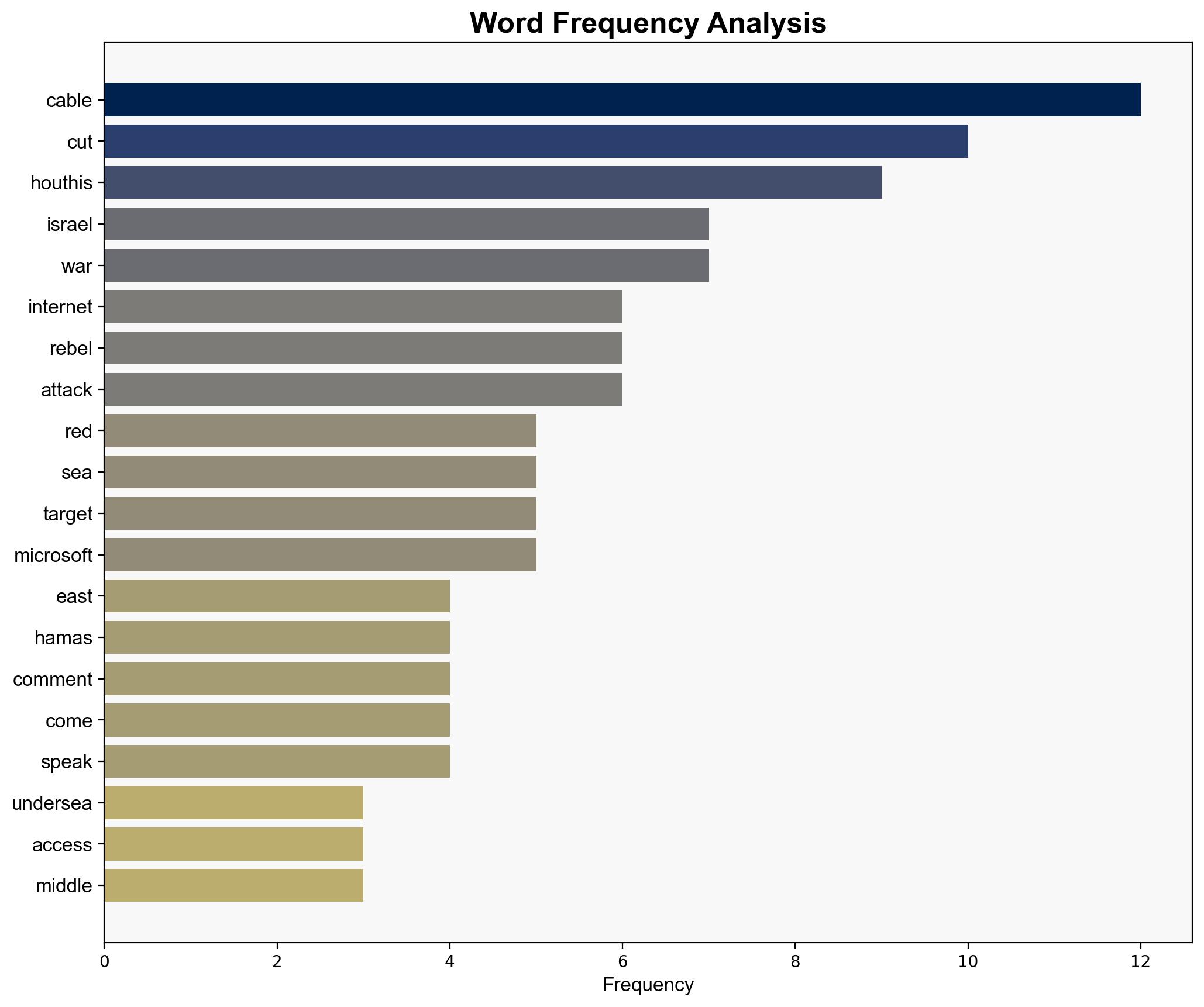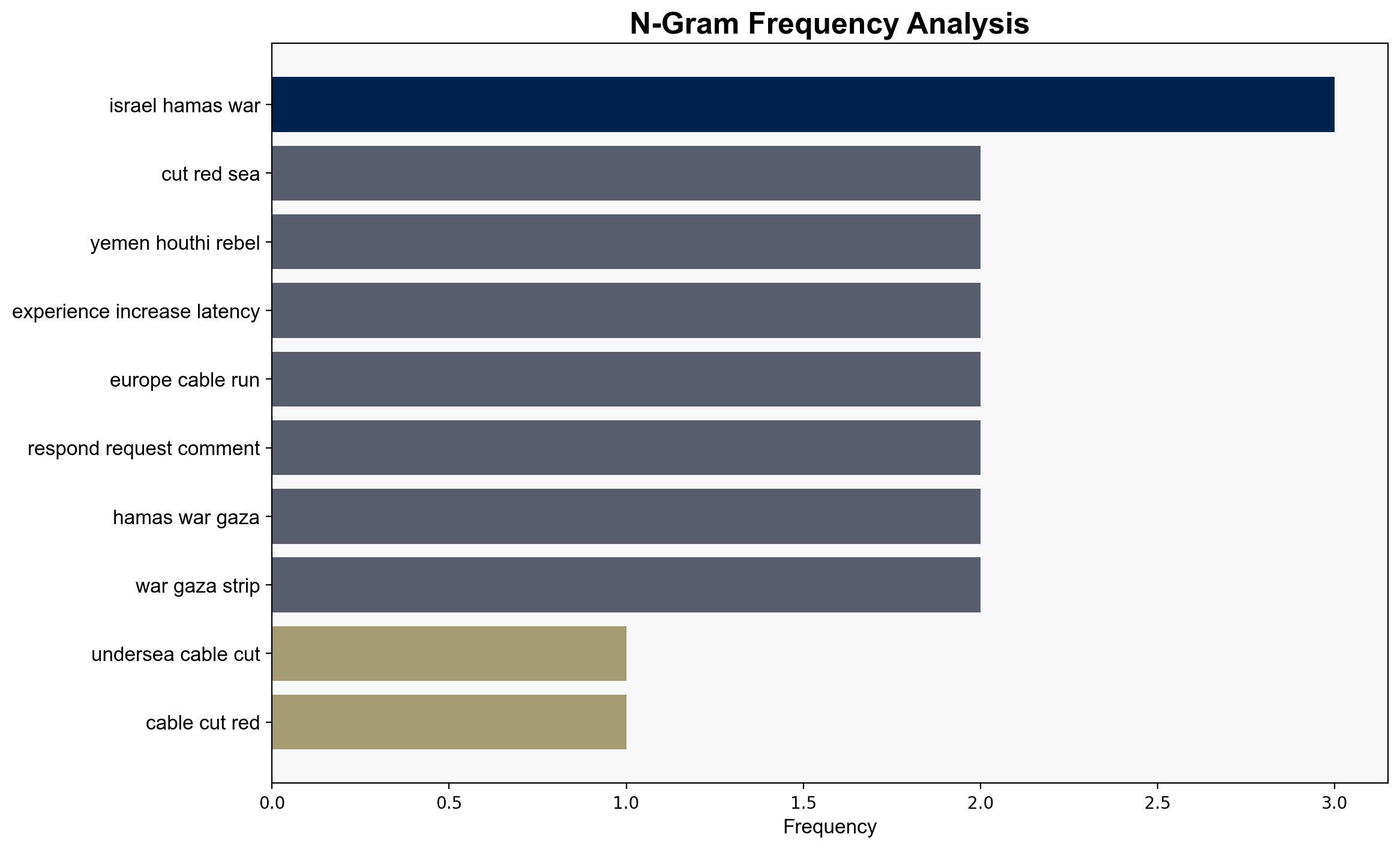Undersea cables cut in Red Sea disrupting internet access in Asia and the Mideast – Japan Today
Published on: 2025-09-07
Intelligence Report: Undersea cables cut in Red Sea disrupting internet access in Asia and the Mideast – Japan Today
1. BLUF (Bottom Line Up Front)
The most supported hypothesis is that the undersea cable cuts were a result of targeted sabotage, potentially linked to geopolitical tensions involving the Houthi rebels and regional conflicts. Confidence level: Moderate. Recommended action: Enhance maritime surveillance and cybersecurity measures in the Red Sea region to prevent future disruptions and assess the geopolitical implications of such incidents.
2. Competing Hypotheses
1. **Sabotage Hypothesis**: The undersea cables were deliberately cut as part of a targeted campaign, possibly by Houthi rebels or other actors, to exert pressure on regional adversaries such as Israel or to disrupt international communications as a form of asymmetric warfare.
2. **Accidental Damage Hypothesis**: The cable cuts were accidental, caused by commercial shipping activities such as anchor dragging, without any malicious intent. This scenario suggests a lack of adequate maritime regulation and monitoring in the Red Sea.
Using ACH 2.0, the sabotage hypothesis is better supported due to the context of ongoing regional conflicts and previous patterns of similar incidents. The denial by Houthi rebels, while noted, does not eliminate the possibility of their involvement given the strategic advantage such actions could provide.
3. Key Assumptions and Red Flags
– **Assumptions**: The sabotage hypothesis assumes that Houthi rebels or other actors have the capability and intent to conduct such operations. The accidental damage hypothesis assumes a lack of intent and highlights the potential for maritime oversight failures.
– **Red Flags**: The denial by Houthi rebels could be a deception tactic. The lack of immediate, detailed responses from affected telecommunications firms and governments raises questions about transparency and the full extent of the incident.
– **Blind Spots**: Limited information on the exact location and nature of the cable cuts, as well as the absence of direct evidence linking specific actors to the incident, create uncertainty.
4. Implications and Strategic Risks
The incident highlights vulnerabilities in global communication infrastructure and the potential for geopolitical conflicts to spill over into cyber and physical domains. Economic impacts include disrupted internet services affecting businesses and individuals across multiple countries. Geopolitically, it may escalate tensions in the region, particularly if linked to ongoing conflicts involving Israel and Iran-backed groups. The psychological impact includes increased public anxiety over infrastructure security.
5. Recommendations and Outlook
- Enhance maritime surveillance and cybersecurity protocols in the Red Sea region to detect and deter future sabotage attempts.
- Engage in diplomatic efforts to address regional tensions and prevent escalation.
- Scenario-based projections:
- Best Case: Improved international cooperation leads to enhanced security measures and reduced incidents.
- Worst Case: Continued sabotage leads to significant economic and geopolitical instability.
- Most Likely: Intermittent disruptions continue, prompting gradual improvements in security measures.
6. Key Individuals and Entities
– Houthi rebels
– Telecommunications firms affected: Tata Communications, Alcatel-Lucent, Pakistan Telecommunications Ltd
– Governments of Saudi Arabia, United Arab Emirates, and other affected countries
7. Thematic Tags
national security threats, cybersecurity, counter-terrorism, regional focus





